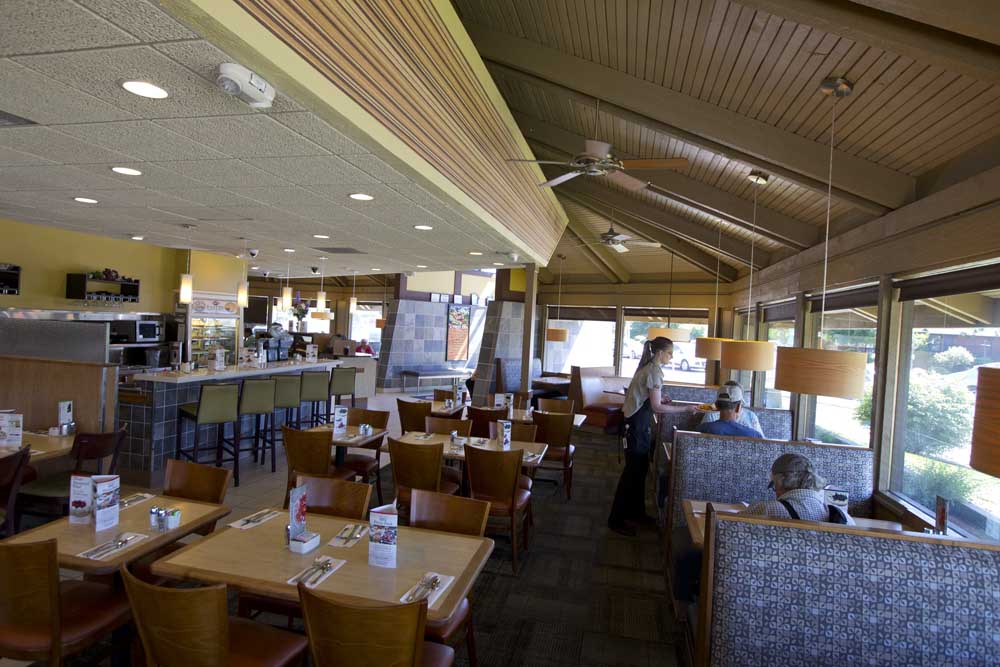Jessica Mendoza is calling Korean baseball games from her home in Bend
Published 9:50 pm Tuesday, May 26, 2020

- Bend’s Jessica Mendoza is a former Olympic softball gold medalist who has been broadcasting games for ESPN since 2014.
It is the wee hours of the morning for the final out of the Hanwha Eagles and the NC Dinos, and Jessica Mendoza finally gets to take her headset off after broadcasting the game.
She is providing color commentary for games taking place across the world in South Korea. Her play-by-play partner, Jon Sciambi, is in New York, while she is in a makeshift studio in her Bend home where she lives with her husband and their two sons. The family moved to Bend last year from Southern California.
“I’m sitting in what feels like a tomb, I’m all alone, and it’s quiet,” said the 39-year-old Mendoza, who has been broadcasting games for ESPN since 2014.
“Yet a part of me is in South Korea, a part of me is in New York City. When I have my headset, I feel like I am in the game, and I’m there. If I take a break to go to the bathroom, it is 2 a.m., and it is so eerily quiet.”
With Major League Baseball and the Players Union in negotiations over when and how to return to the diamond this summer during the coronavirus pandemic, the Korea Baseball Organization (KBO) is in full swing. ESPN has been broadcasting its games played without fans in the stadiums — a likely occurrence once MLB returns.
It is not uncommon to call games remotely. While working for the Pac-12 Network covering softball, Mendoza and her crew would call an Arizona State game in the morning, Oregon in the afternoon, and UCLA in the evening all from the studios in San Francisco.
“Granted that is a little less crazy than having me in Bend, our play-by-play guy in New York City, our producer in Connecticut and then the games happening in South Korea — a couple of (time zones) ahead of us,” Mendoza said. “That is a different piece of uniqueness for sure.”
Now, they are watching the game with a one- to two-second delay, and the occasional glitch from broadcasting remotely. Being in different locations can disrupt the rhythm between play-by-play announcers and color commentators, sometimes creating awkward timing for who talks when.
When Mendoza, the former Stanford softball standout and Olympic softball gold medalist, shared a booth with Alex Rodriguez and Aaron Boone during ESPN’s Sunday Night Baseball, slight body movements could signal that a person wanted to say something on the air. But with the thousands of miles between partners, they have had to be creative with re-creating booth-like chemistry that can take years to develop.
“We’ve set up a separate Zoom meeting that is aside from the actual broadcast so we can see each other,” Mendoza said. “When I have something that I really want to say, I’ll raise my pencil so that he (Sciambi) can see, but the camera can’t.”
While there are some familiar former MLB players in the KBO — including Dan Straily, who plays for the Lotte Giants and lives in Bend during the offseason — Mendoza went through a crash course of learning about the KBO.
“When you are going into something you have never done before, what struck me is that I didn’t know where to begin,” Mendoza said. “I was studying everything, like what was happening in 1905 in South Korea, as far as baseball goes. There is so much research. It is endless.”
While the game is still the same, the way it is played in South Korea has its nuances.
One of the main differences Mendoza sees is less analytically-driven games compared with the MLB. There are fewer defensive shifts in the KBO, and strikeouts are less common. Also, while bullpens are often a strength in MLB, in the KBO, pitching rosters are not as deep.
“Here the bullpens are the stars, while over (in South Korea) the starter comes out and the pitching really falls off,” Mendoza said. “So what you are going to see is an offensive-driven game late in the game. We saw 14 runs in an eighth-inning, and that is just not normal. Over there, it is.”






